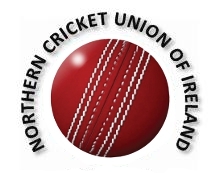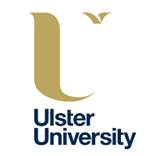|
Andrew White NCU Cricket Academy Receive Nutrition Advice
 Richard White Richard WhiteNCU PRO The Andrew White NCU Academy returned home from South Africa with memories and experiences gained on and off the field that will last for a lifetime. For many of these young cricketers they experienced sport in a hot environment that is alien to our climate in Northern Ireland. On overseas tours physical exertion occurs daily, nutrition and hydration are vitally important. Prior to leaving these shores the Academy received an evening's advice from Dr Andrea McNeilly, a Lecturer in Sport and Exercise Nutrition at the Ulster University, Jordanstown. For all cricketers as they embark on another cricket season the advice is just as applicable, and worth taking on board. The importance of nutrition in sport can enable:
The body cannot operate on an 'empty tank', and to fuel the body for activity carbohydrates are the principal requirement. Dr McNeilly advised that a high carbohydrate meal should be consumed between two and four hours before activity, with a carbohydrate snack one to two hours prior.
Breakfast
Lunch
Main Meals
Desserts
Post exercise it is important to consume a carbohydrate rich snack, such as yoghurt, banana, scones with jam/honey, jelly beans/babies or chewy sweets, followed up by a main meal within two hours. However, it is important to note that the choice should be practical and enjoyable. Water is the source of all life, and the loss of fluid can have physical consequences: reduction of muscular strength and fatigue; and mental consequences: reduced concentration, and impaired accuracy and decision-making ability. A 2% loss of fluid by sweat for a 70 kg man, equates to 1.4 Litres, can lead to impaired performance, at 5% it is heat exhaustion, and at 10% heat stroke. When sport is played in hot conditions the replacement of fluid loss is vitally important. A severe example of the impact of fluid loss was seen in 1986 when Australia played a Test Match against India in Madras. Dean Jones scored 210, over 503 minutes, in 42 degrees with extreme humidity. The innings left Jones in hospital on a saline drip, urinating involuntarily and having no control over vomiting. The 8kg in weight that he lost took nine months to regain. Dean Jones would admit the he hardly remembered the latter part of his innings due to exhaustion, and stated that when 56 not out overnight, 'I didn't drink water overnight, one hour into day two I knew I was in trouble. I didn't drink anything apart from a cup of tea or coffee. We didn't know anything about dehydration or rehydration back then.' The conditions in India might have been extreme but even in cooler northern European temperatures, an elevation beyond the norm during the summer can prove problematic for our bodies if not taken seriously. Our urine colour can provide an indicator to our well-being: clear being hydrated through to straw colour being dehydrated. The advice from Dr McNeilly was to fully hydrate two hours prior to exercise, keep taking water during natural breaks in play, and then fully hydrate afterwards. The session with Dr McNeilly showed the Andrew White NCU Academy cricketers that sports people often concentrate on the technical aspects of their sport but fail to optimise that performance by fuelling the body correctly.
|
|
© Northern Cricket Union
|

 Examples include:
Examples include: 

